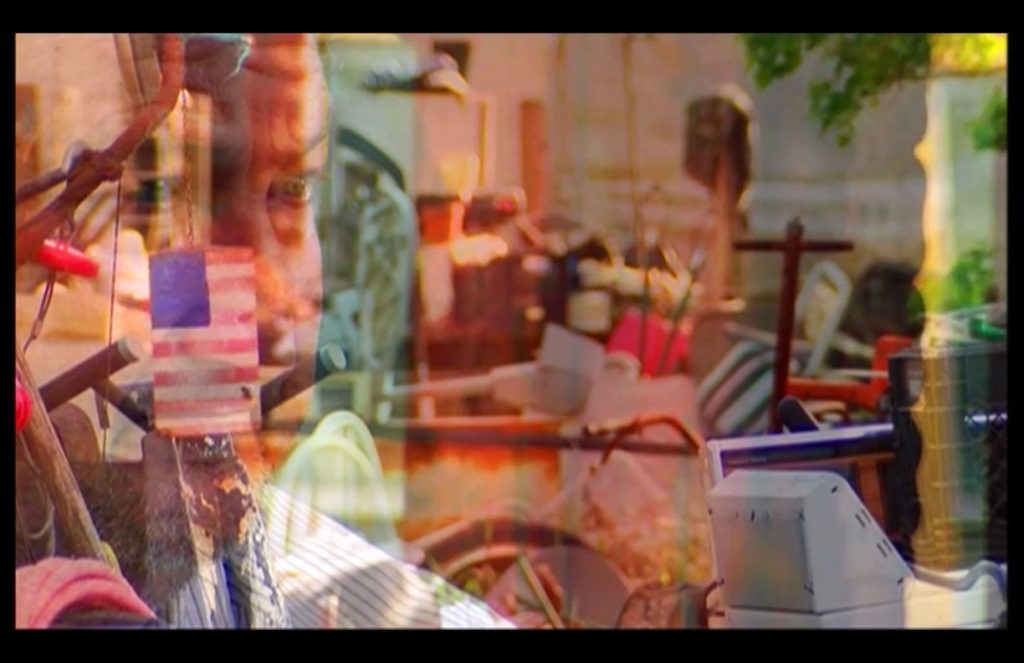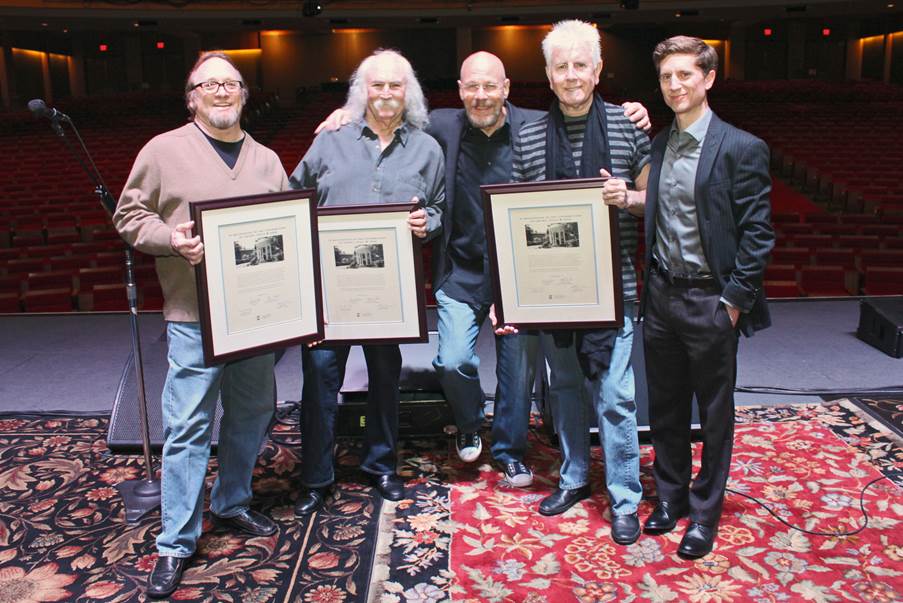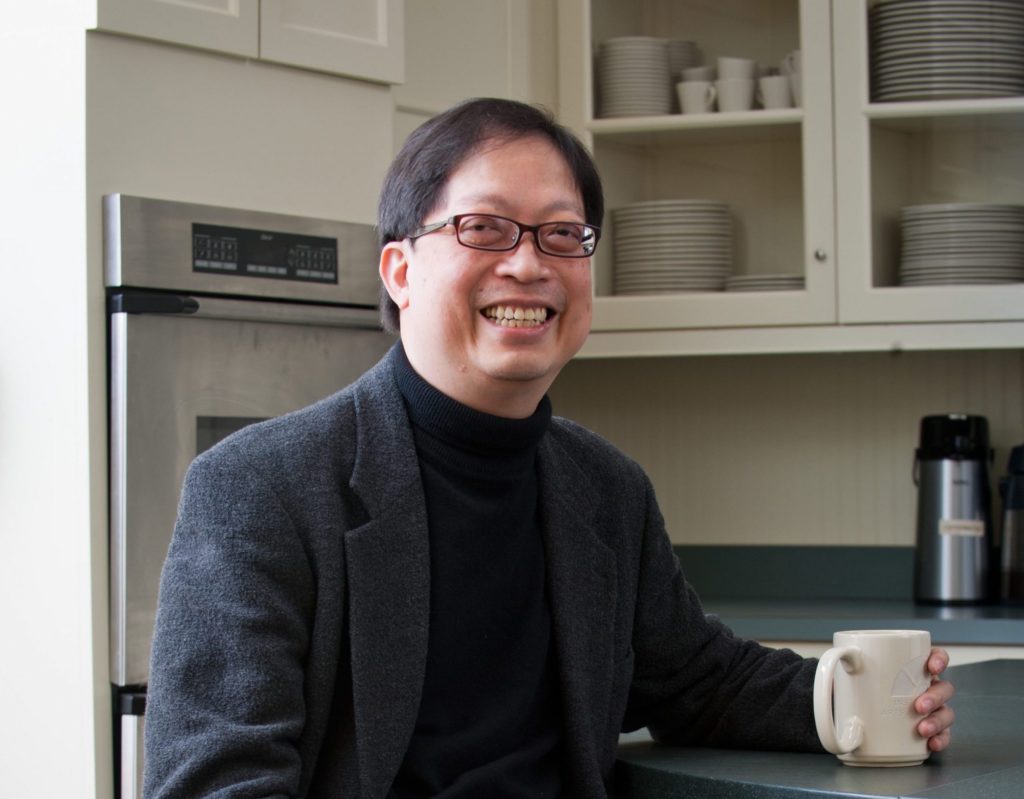Edges of Time, a new play by Jacqueline Lawton, assistant professor of dramatic art and dramaturg for PlayMakers Repertory Company, explores the early career and “unconventional life” of black female journalist and activist Marvel Cooke. A staged public reading will be held Dec. 14.
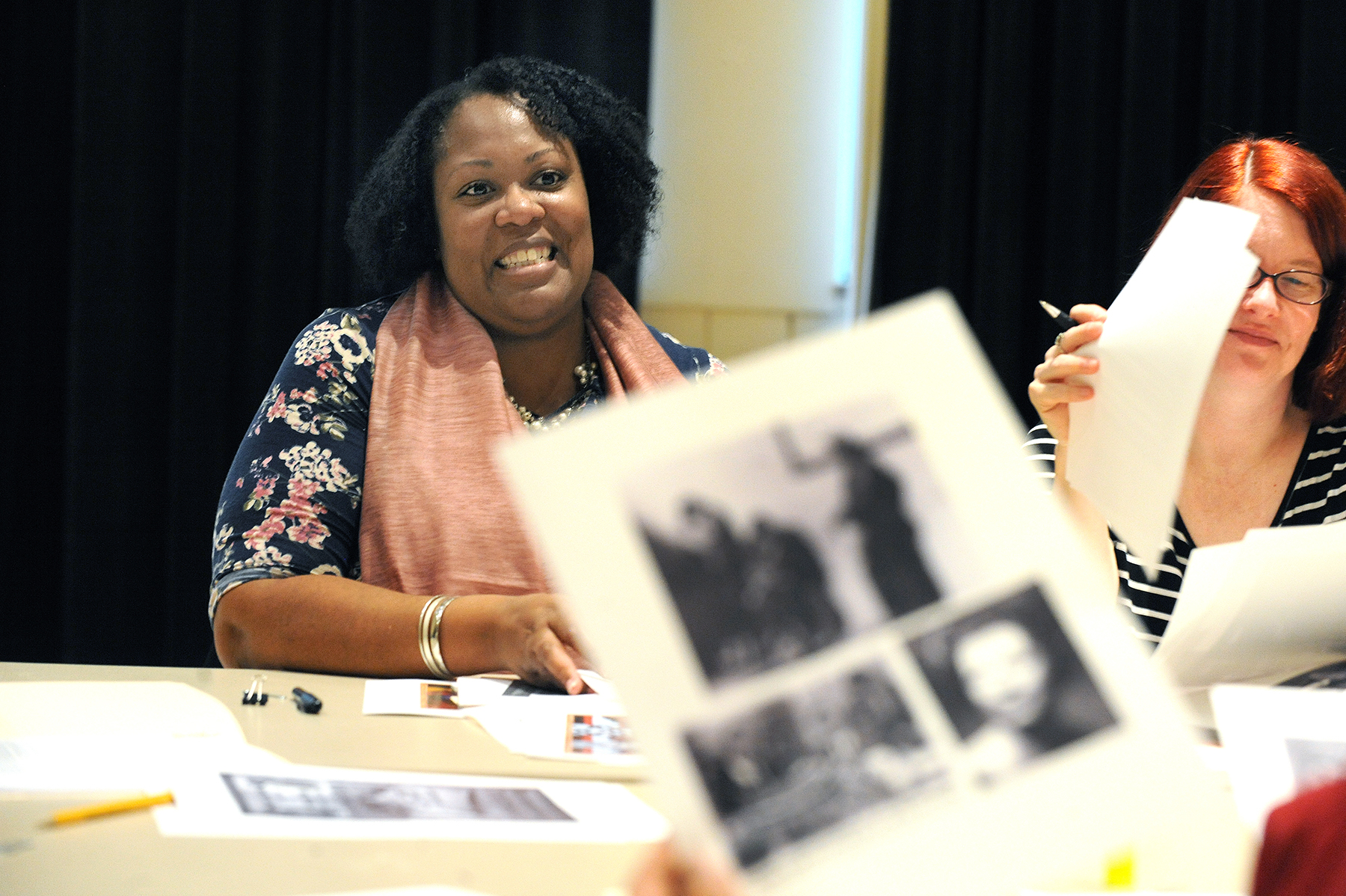
While doing a Google search to find a new subject for a one-woman show, playwright Jacqueline Lawton discovered the largely untold story of pioneering journalist and activist Marvel Cooke. In 1950, Cooke became the first black and at the time the only female reporter at The Daily Compass, a New York newspaper. She was also a member of the Communist Party.
“A play or book or film had never been written about her, and there’s so much to explore. The play is also very timely with the current political climate attacking journalism,” Lawton said while sipping a cup of hot tea in the Hyde Hall kitchen. “Marvel Cooke was an unconventional, groundbreaking, extraordinary woman with a true curiosity about the world and a sense of service.”
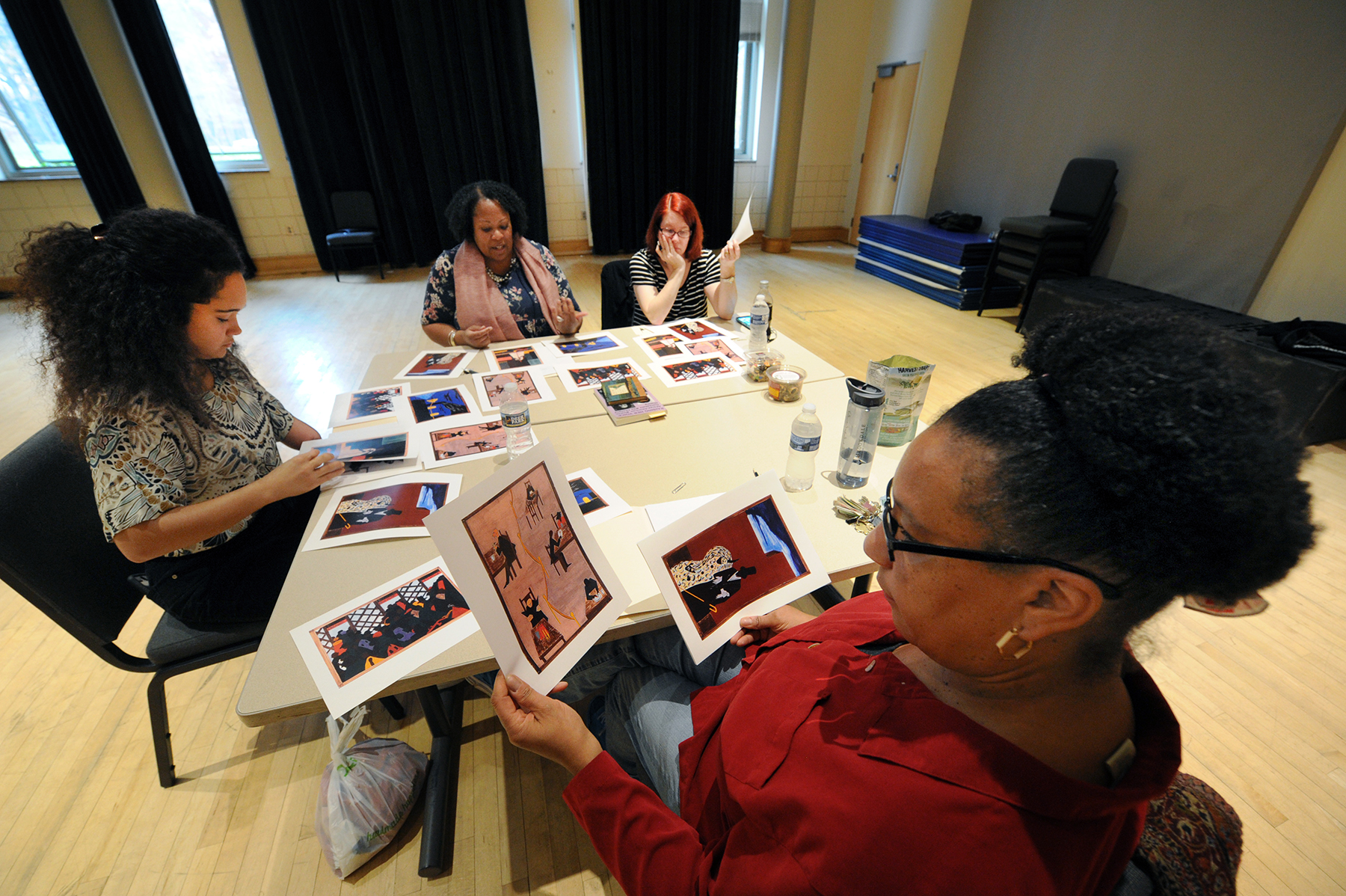
Lawton, an assistant professor of dramatic art and a dramaturg with PlayMakers Repertory Company in the College of Arts & Sciences, received an Institute for the Arts and Humanities fellowship to work on the play and has spent a lot of time in Hyde Hall this semester. She called that experience a “phenomenal and rejuvenating opportunity.” The other faculty members in her fellowship class came from diverse disciplines including art, American studies, creative writing, romance studies and the School of Information and Library Science, and that made the experience even richer.
Although she’s used to collaborating with many others to bring a play to life, what was different about the fellowship was “inviting my colleagues to read a work in progress,” she said. “Normally no one except for a dramaturg — someone tasked with researching the world of a play and/or someone who helps the playwright bring the characters and story to life in a rich, full, clear and dynamic way — would see a work at that stage. But I felt so safe and brave with this group of fellows.”
The public is invited to a Dec. 14 staged reading and post-show discussion of Edges of Time, which Lawton describes as “a powerful and haunting exploration of the role of journalism, the impact of government overreach and what it means for a woman to live her life freely and independently in a patriarchal world.” It will take place in Room 102 of the Joan H. Gillings Center for Dramatic Art at 7:30 p.m.
An unconventional life and a North Carolina connection
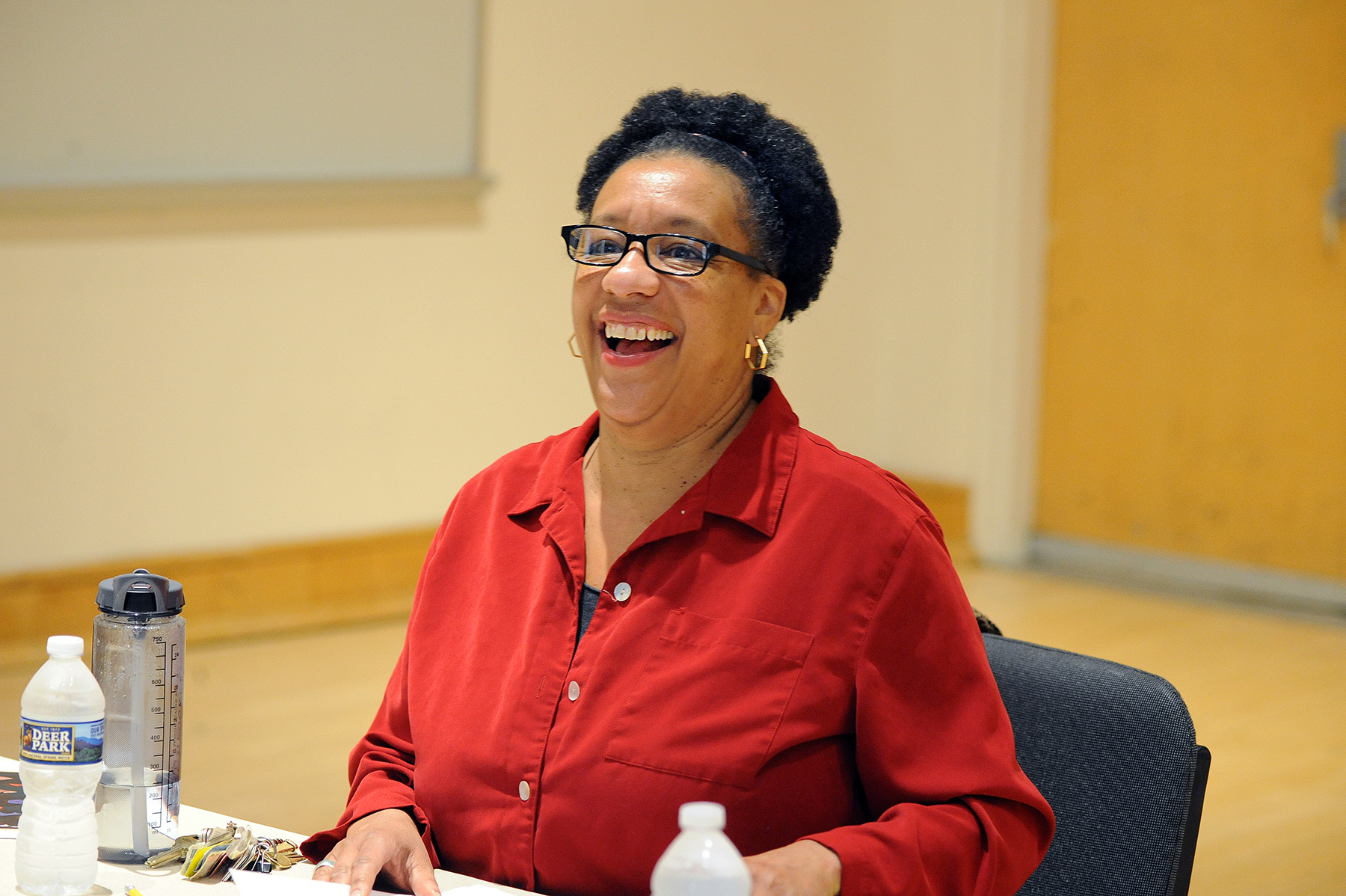
Edges of Time is set in 1963 in the wake of the Birmingham church bombing. Cooke reflects on her life — from a socialist upbringing in Minnesota to a career in progressive journalism in New York to a trip to East Germany for an international peace conference that led to a subpoena from Joseph McCarthy to testify about her involvement with the Communist Party. She pleaded the Fifth Amendment at those hearings.
Cooke had worked at The Crisis, an NAACP publication edited by W.E.B. Du Bois, as well as the Amsterdam News and the People’s Voice — but she is perhaps most well-known for her Daily Compass investigative article exposing the injustices faced by New York housekeepers. The housekeepers were known as the “paper bag brigade” because they would line up on a street in the Bronx with their uniforms in paper bags, waiting for the women of Manhattan to hire them for hourly domestic work.
Cooke went undercover as a housekeeper to research the story, and the article was published on Jan. 8, 1950, with the headline “I was Part of the Bronx Slave Market.”
“The first line of the article reads ‘I was a slave,’ which was provocative and hugely risky,” Lawton said.
In 1929, Cooke’s career took her to North Carolina for a brief period, when she and her husband, Cecil, were hired to teach history, English and Latin at North Carolina Agricultural and Technical State University.
“Her husband bought a second-hand car because she told him she didn’t want to ride in the colored section of the train, so they drove from New York to North Carolina straight through in two or three days, after stopping in D.C.,” Lawton said.
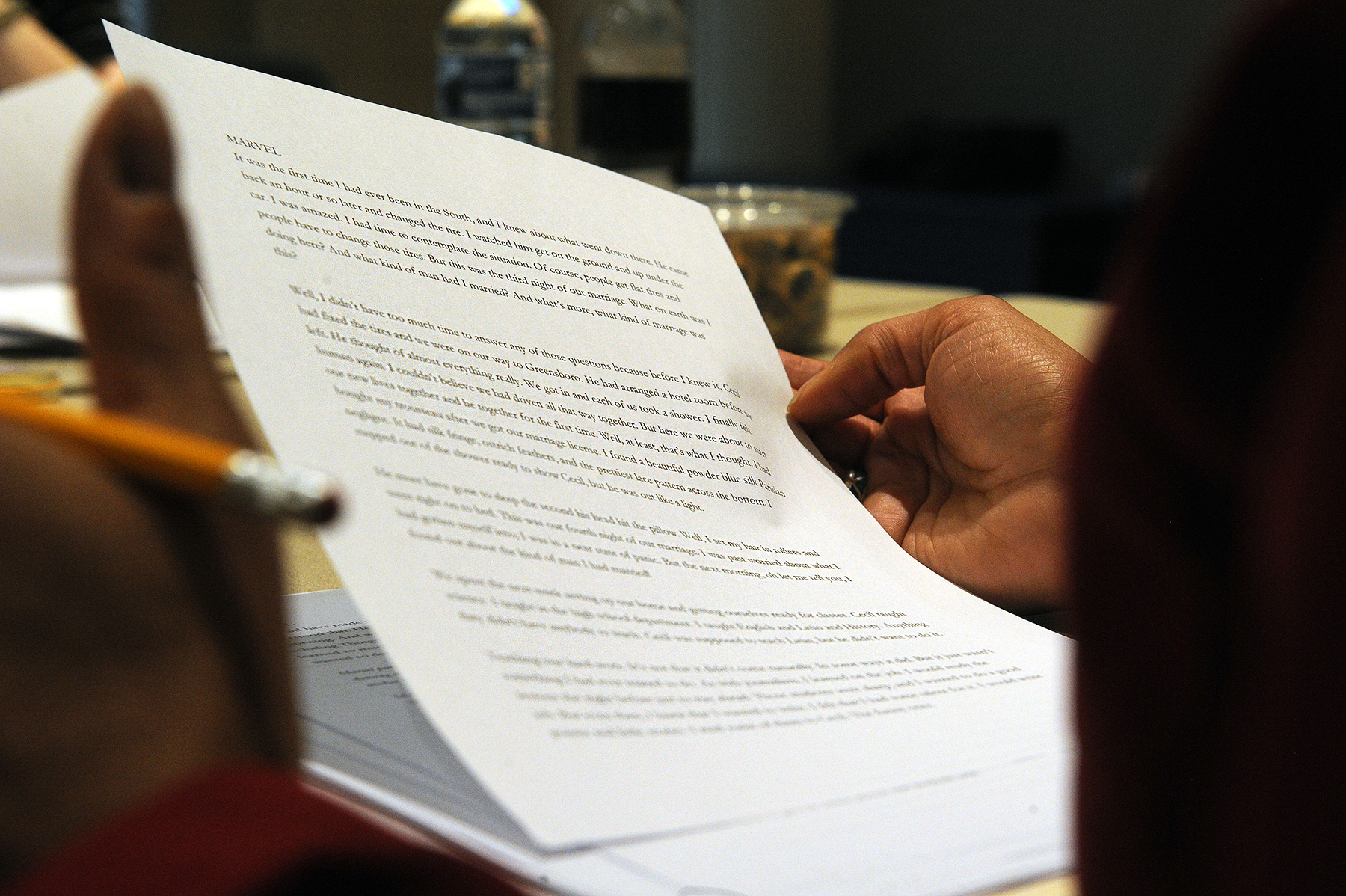
The collaborative world of the play
Lawton pulled together a team of artists to help her tell Cooke’s story, and they held a workshop of the play on Dec. 1.
Lawton asked her department office mate, Kathyrn Hunter-Williams, teaching associate professor of dramatic art and PlayMakers Repertory Company member, to play Marvel Cooke. UNC-Charlotte colleague Kaja Dunn, an assistant professor of acting, is directing the staged reading. Local artist/scholar Jules Odendahl-James is the dramaturg for the production, and undergraduate student Ash Heffernan is reading stage directions.
“The new play development process is really critical, and it’s important to bring the right people into the room,” Lawton said. “Working with Jules as a dramaturg on these early drafts has been key to my process. She reads every draft and sends thoughts and reflections that help me get to the heart of the play. But a play is not fully realized until you see it in performance, so bringing together the actors, director, designers and the audience is where the real magic happens.”
Williams said Cooke’s story is particularly fascinating to her because both of her parents were journalists in the 1950s. She said Lawton is a great storyteller who provides complex characters for actors to portray.
“Jacqueline expands everybody’s insights into American history by unearthing the stories of these beautiful women and bringing them to life,” she said. “When young people hear these stories, it widens their world.”
Williams said it’s also important that the department support the production of Lawton’s work since “we are part of her creative family.”
“I’m thrilled that PlayMakers and the department are there to bring these diverse voices into the American theater canon,” she said.
For Dunn, Edges of Time provided another opportunity to partner with Lawton. Last spring, she directed Lawton’s play Noms de Guerre as part of the PlayMakers/Process Series “Making Tracks” festival, which supported four new works.
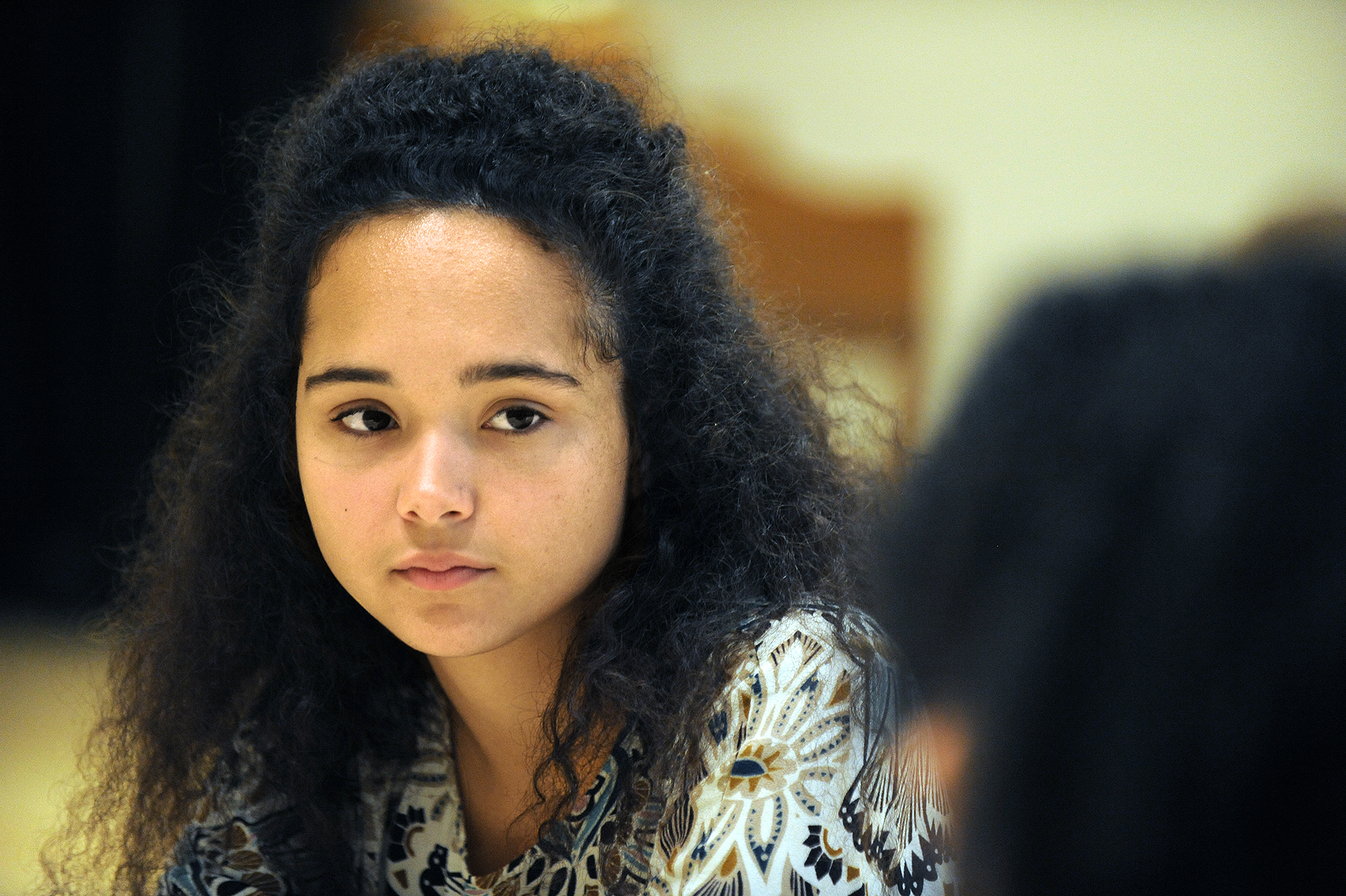
“Jacqueline really understands strong African-American women, but also shows their vulnerabilities; she allows for the full humanity of the characters,” Dunn said. “To be able to work across the UNC system with these artists who really care about their craft is a gift.”
Heffernan, a senior dramatic art and communication major, took Lawton’s “Theater for Social Change’ class. She is delighted to participate in the production of Edges of Time.
“As a theater artist, I’m really interested in works in development. I co-produce a reading series with the undergraduate Kenan Theater Company, where we also try to focus on voices of playwrights or characters that we don’t get much of in mainstream theater,” said Heffernan, who is pursuing a minor in social and economic justice. “With a one-woman show, this forces us to deal with difficult topics, bringing the audience face-to-face with Marvel Cooke’s story.”
Theater is the perfect medium to tell Cooke’s story, Lawton said.
“There’s nothing like live theater … human to human, breath to breath … in a room where you’re seated right next to people you may or may not know, and you’re having this shared experience.”
By Kim Weaver Spurr ’88
Read Jacqueline Lawton’s blog post about her IAH fellowship and writing the play.

